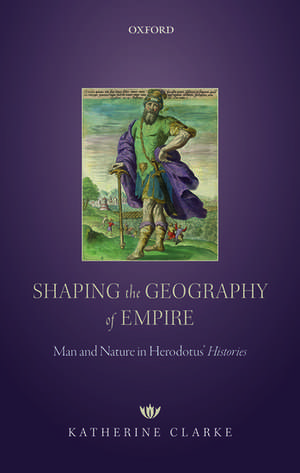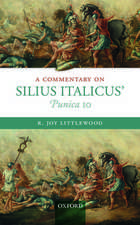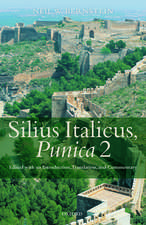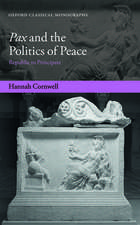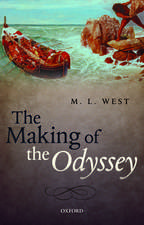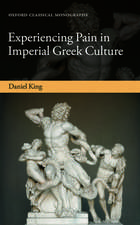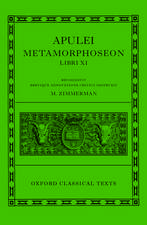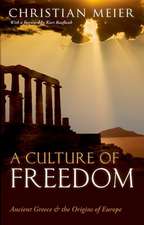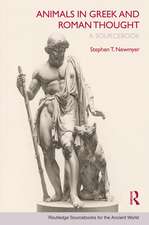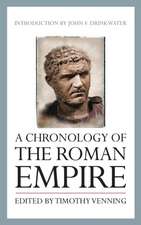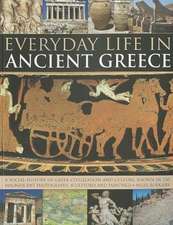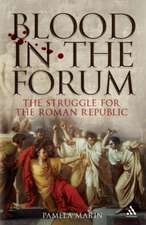Shaping the Geography of Empire: Man and Nature in Herodotus' Histories
Autor Katherine Clarkeen Limba Engleză Hardback – 21 iun 2018
Preț: 657.91 lei
Preț vechi: 943.96 lei
-30% Nou
Puncte Express: 987
Preț estimativ în valută:
125.89€ • 131.91$ • 104.07£
125.89€ • 131.91$ • 104.07£
Carte tipărită la comandă
Livrare economică 31 martie-07 aprilie
Preluare comenzi: 021 569.72.76
Specificații
ISBN-13: 9780198820437
ISBN-10: 0198820437
Pagini: 368
Dimensiuni: 147 x 220 x 26 mm
Greutate: 0.58 kg
Editura: OUP OXFORD
Colecția OUP Oxford
Locul publicării:Oxford, United Kingdom
ISBN-10: 0198820437
Pagini: 368
Dimensiuni: 147 x 220 x 26 mm
Greutate: 0.58 kg
Editura: OUP OXFORD
Colecția OUP Oxford
Locul publicării:Oxford, United Kingdom
Recenzii
Clarke's erudite style makes reading her book a challenging yet engaging experience...a significant strength of the book is its awareness of the many subtle connections and interactions within the intricate fabric of Herodotus' text...Clarke demonstrates the suggestive and evocative ways in which Herodotus encourages his audience to compare and weigh his geographical information in relation to his larger narrative enterprise. Her book pays due homage to Herodotus as an observer of the natural world affected by human interference, a topic of prime relevance to any 21st century audience.
Notă biografică
Katherine Clarke undertook her BA in Classics (Literae Humaniores) at St John's College, Oxford, before going on to obtain her D.Phil. in Ancient History also at Oxford in 1996, where she held a Graduate Scholarship followed by a Junior Research Fellowship, both at Christ Church. In 1998 she was appointed to the Tutorial Fellowship in Ancient History at St Hilda's College, where she has remained ever since. She was the recipient of a Philip Leverhulme Prize for the period 2001-3 and has held various positions of responsibility in both her College and the university's Faculty of Classics including Vice Principal in College, 2013-16, and Chair of the Sub-Faculty, 2015-17.
